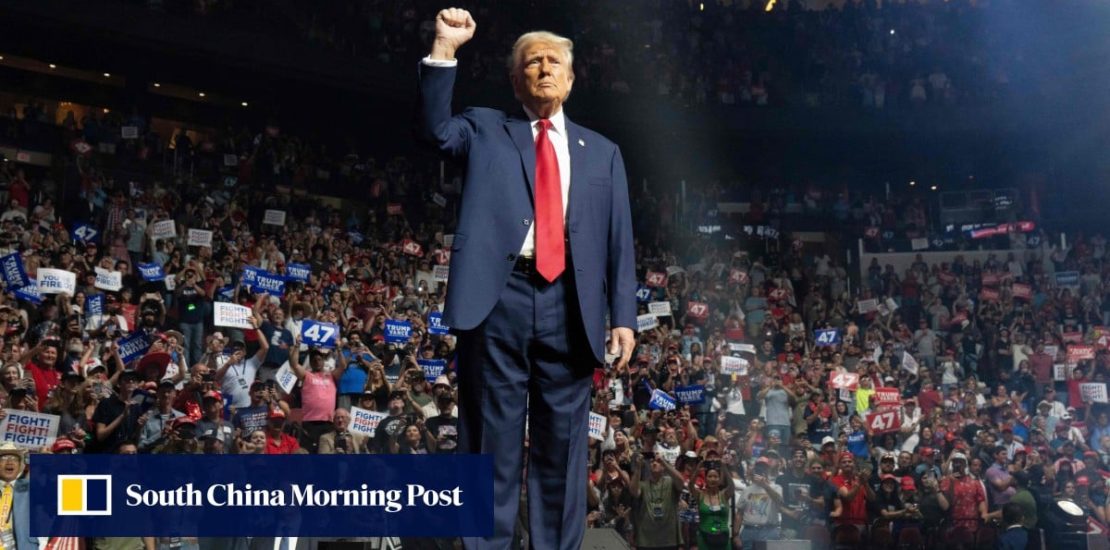- August 24, 2024
- Posted by: Regent Harbor Team
- Category: Global Economy

Contents
Trump and Harris Vow No Tax on Tips: A Closer Look
The presidential campaigns of Donald Trump and Kamala Harris are heating up, both presenting no-taxes-on-tips policies in a bid to court vital voters. Hospitality workers, especially those in Nevada and other key battleground states, stand to gain significantly from these proposals.
Trump’s Bold Tax Promises
Trump has made the no-tax-on-tips policy a central part of his campaign. At a recent event held at a Mexican-Italian restaurant in Las Vegas, he emphasised his commitment to allowing workers to retain all their hard-earned tips. He declared, "We’re going to let you keep 100 per cent of your income and not be harassed," dubbing it the "biggest promise" restaurant workers have had in a long time.
He also attacked his rival, Kamala Harris, for adopting a similar proposition. He accused her of copying his policy and doubted her resolve to see it through. During a rally in Glendale, Arizona, Trump reiterated, "It’ll never happen with her; it’s guaranteed to happen with me, no tax on tips."
Harris’s Pragmatic Approach
Kamala Harris, too, selected Las Vegas to announce her pledge to cut taxes on tips, albeit her proposal only affects federal income taxes, leaving payroll taxes for Social Security and Medicare untouched. Harris recently accepted her party’s presidential nomination and utilised her speech to present herself as a champion for the middle class. She vowed to implement measures to reduce household expenses and highlighted tax reforms source.
Financial Impacts of the Policies
Eliminating federal taxes on tipped wages has significant financial implications. More than six million hospitality workers who reported a total of $38.3 billion in tipped income in 2018 could see their tax burdens reduce. This averages out to about $6,250 per tipped worker. The Committee for a Responsible Federal Budget estimated income tax exemptions for tips could cost around $100 to $200 billion over a decade.
Bipartisan Support and Criticism
Both Trump and Harris’s common ground on this issue is noteworthy. Their proposals come as both seek to gain an edge in battleground states like Nevada.
Natalie DeNardo, a mortgage broker who attended Trump’s Las Vegas event, noted the substantial impact this policy could have. Her father, a bartender, would benefit significantly. However, DeNardo voiced scepticism about Harris’s similar pledge, stating, "She is just jumping on the bandwagon. She could have done this in the past three and a half years if she really wanted to."
Broader Tax Policies
While Trump is focused on broader tax cuts aimed at corporations and higher earners, Harris is expected to follow Joe Biden’s lead in proposing tax reforms. Biden’s plans involve raising the corporate rate to 28% from 21% and increasing taxes on the wealthy, while promising not to raise taxes on those earning less than $400,000.
Here is a comparison of their broader tax policies:
| Candidate | Key Tax Policy Proposals |
|---|---|
| Donald Trump | – No tax on tips for all income – Broad tax cuts for corporations and high earners |
| Kamala Harris | – No federal income tax on tips – Raise corporate rate to 28% – Tax increases for the wealthy, no tax hikes for earners under $400,000 |
Conclusion
As the campaigns gather momentum, the no-tax-on-tips policy has become a pivotal issue. Both Trump and Harris are leveraging it to connect with workers in hospitality-driven states. However, their broader tax strategies remain starkly different, reflecting their distinct philosophies on fiscal management. The coming weeks will undoubtedly see more fiery debates and policy clarifications as they vie for the ultimate prize: the White House.
